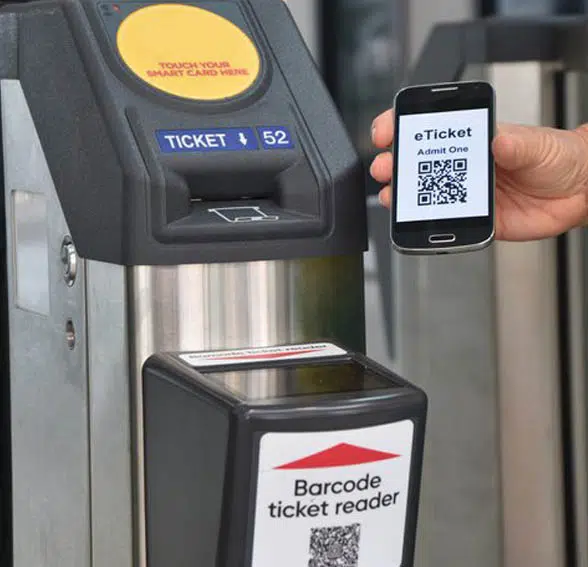
Smart ticketing has been introduced for passengers using major railway stations in the UK.
The move sees travellers at all major stations across Britain, including London Waterloo, Brighton, Gatwick Airport, Edinburgh Waverley and Glasgow Central, able to store tickets securely on their mobile phone, on a smart card or in a printable email.
The tickets can be read automatically at upgraded barriers and ticket readers at 890 stations.
The system makes buying tickets faster and more secure, allows rail companies to move away from existing paper-based tickets and sets the scene for the introduction of a variety of innovative new types of rail fare.
Following installation of more readers at stations and software updates due at the end of this month, rail industry body the Rail Delivery Group (RDG), expects nine in 10 tickets to be available for sale to customers as smart tickets.
“Together, rail companies are going full steam ahead with smart ticketing, with passengers increasingly able to use their phones or smartcards thanks to station upgrades across the network,” says RDG regional director Robert Nisbet.
Rail tickets can be bought online or via an app. Travellers have the choice of loading them onto their mobile phone, onto a smart card or printing them out from an email. This removes the need to queue at a ticket office or kiosk at a station.
Up to five tickets can be stored on a smart card at any time with the contactless card read when tapped on a reader at the station.
If the tickets are bought via a mobile travel app, the mTicket containing a barcode can be scanned at the ticket gate or barrier directly from the phone.
Alternatively, an eTicket can be purchased online with a PDF of the ticket emailed to the customer. The barcode from this can be scanned off the phone by the reader at the ticket gates or the email printed out and scanned.
Travellers can get a smart card online from the individual train operators or collect one from a participating railway station.
Between 6 January and 3 March, 14.1 million smart tickets were sold.
Smart ticketing is just the first part of RDG’s ambitions. The rail companies want to use its introduction as a base for overhauling the national fare structure to make it simpler and easier to use as well as enhancing the benefits of smart ticketing.
This requires regulatory reform, so RDG is “working with government to update the rules that underpin our rail fares”.
These changes would simplify fares to make them more transparent and flexible for travellers, enabling them to select from an easy-to-understand range of tickets online and on smart devices, or use pay-as-you-go.
Smart ticketing would also allow travellers to change their plans, get hassle-free refunds and know that any discounts or maximum fare caps have been incorporated so they have the right ticket for their journey, at the best available price, every time.
RDG plans real-world trials over the next year to further test and refine how its ideas work in practice.
“Commercial contracts would then need to be revised and agreed, starting a programme of reform which, with all parties working together, has the potential to be rolled out operator by operator across the network over the next three to five years,” says RDG.
ScotRail is currently running a trial of pay-as-you-go ticketing on lines around Glasgow, Scotland. The Smart Plus Pilot Programme enables travellers to load money onto a smart card and use it as a ticket on the company’s trains.
Next: Visit the NFCW Expo to find new suppliers and solutions